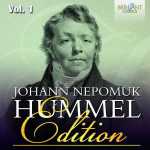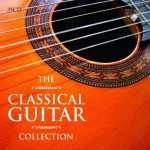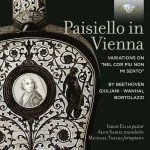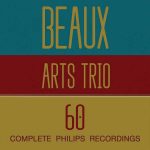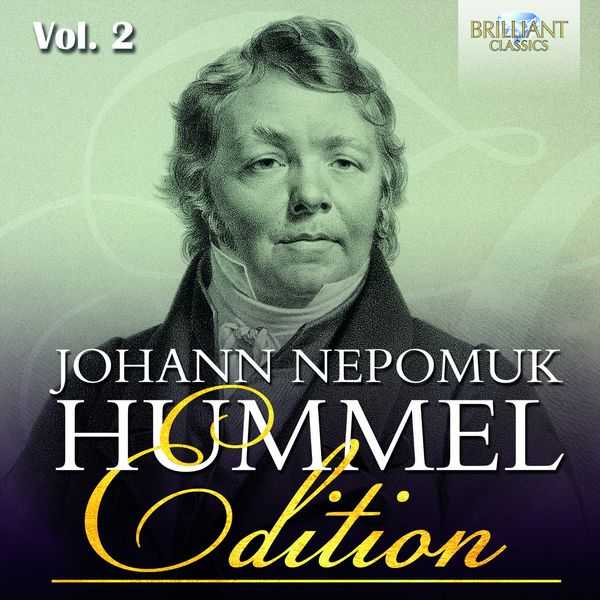
Composer: Johann Nepomuk Hummel
Performer: Costantino Mastroprimiano, Madoka Inui, Luigi Bianchi, Aldo Orvieto, Luigi Bianchi, Claudio Maccari, Giovanni Togni, Izhar Elias, Michael Tsalka, Marco Testori, Lise Daoust, Carmen Picard, Lise Daoust, Daniela Cammarano, Luca Magariello, Nepomuk Fortepiano Quintet, Solamente Naturali, Hae-Won Chang, Herbert Beissel, Hans Kann, Mary-Louise Boehm, Diego Dini Ciacci, Virtuosi Saxoniae, Ludwig Güttler, Vinzenz Hladky, Martin Galling
Orchestra: Budapest Chamber Orchestra, Hamburg Symphony Orchestra, Hamburg Symphony Orchestra, Orchestra Internazionale d’Italia Opera, Vienna Pro Musica Orchestra, Russian Philharmonic Orchestra
Number of Discs: 10
Format: FLAC (tracks)
Label: Brilliant Classics
Catalogue: 95792
Release: 2018
Size: 2.67 GB
Recovery: +3%
Scan: cover
Septet for Piano, Flute, Oboe, Horn, Viola, Cello and Double Bass, Op. 74
01. I. Allegro con spirito
02. II. Menueto o scherzo
03. III. Andante con variazioni
04. IV. Finale. Vivace
Septet for Piano, Flute, Clarinet, Trumpet, Violin, Cello and Double Bass, Op. 114 “Military”
05. I. Allegro con brio
06. II. Adagio
07. III. Menueto. Allegro
08. IV. Finale. Vivace
Piano Concerto in A Minor, Op. 85
09. I. Allegro moderato
10. II. Larghetto
11. III. Rondo. Allegro moderato
Piano Concertino in G Major, Op. 73
12. I. Allegro moderato
13. II. Andante Grazioso
14. III. Rondo
Introduction & Rondo brillant in F Minor, Op. 127 “Le retour de Londres”
15. I. Introduction (Largo)
16. II. Allegretto vivace
Concerto for Piano, Violin & Orchestra in G Major, Op. 17
17. I. Allegro con brio
18. II. Andante con variazioni
19. III. Rondo
Piano Concerto No. 3 in B Minor, Op. 89
20. I. Allegro moderato
21. II. Larghetto – Finale. Vivace
Piano Concerto No. 4 in E Major, Op. 110
22. I. Allegro pomposo e spirituoso
23. II. Andante con moto
24. III. Rondo. Allegro moderato ma con brio
24 Etudes, Op. 125
25. I. —
26. II. —
27. III. —
28. IV. —
29. V. —
30. VI. —
31. VII. —
32. VIII. —
33. IX. —
34. X. —
35. XI. —
36. XII. —
37. XIII. —
38. XIV. —
39. XV. —
40. XVI. —
41. XVII. —
42. XVIII. —
43. XIX. —
44. XX. —
45. XXI. —
46. XXII. —
47. XXIII. —
48. XXIV. —
Bassoon Concerto in F Major, WoO. 23
49. I. Allegro moderato
50. II. Romanza. Andatino e cantbile
51. III. Rondo. Vivace
Introduction, Theme and Variations in F Major, Op. 102
52. I. Introduction. Allegro
53. II. Theme and Variations. Allegretto
Clarinet Quartet in E-Flat Major, S.78
54. I. Allegro moderato
55. II. La seccatura. Allegro molto
56. III. Andante. Andante
57. IV. Rondo. Allegretto
Trumpet Concerto in E Major, S.49
58. I. Allegro con spirit
59. II. Andante
60. III. Rondo
Mandolin Concerto in G Major, S.28
61. I. Allegro moderato e grazioso
62. II. Andante con variazioni
63. III. Rondo
La galante in G Major, Op. 120
64. I. Introduzione. Larghetto e cantabile
65. II. Rondo. Allegro grazioso
Violin Concerto in G Major
66. I. Allegro risoluto
67. II. Adagio
68. III. Rondo
69. Te Deum for Chorus & Orchestra in D Major, WoO 16, S. 70
Missa solemnis for Soloists, Chorus & Orchestra in C Major, WoO 12, S. 74
70. I. Kyrie
71. II. Gloria
72. III. Credo
73. IV. Sanctus
74. V. Benedictus
75. VI. Agnus Dei
76. Alma Virgo, Op. 89 a, Offertorium in F Major for Soprano, Choir and Orchestra
Der Durchzug durchs rote Meer, S.33
Part 1
77. I. Intrada
78. II. Aus der Tiefe unsers Elends
79. III. Recitative. Und immer schwerer lastet das Joch der Sklaverei
80. IV. Aria. Ich, eurer Vater Gott
81. V. Der Herr hat unser Geschrei erhört
82. VI. Es macht der Herr durch unsern Mund, dir König, seinen Willen kund
83. VII. Recitative. Verblendet war des Königs Sinn
84. VIII. Aria. Ich schwebe auf des Todes Fittich
Part 2
85. I. Recitative. Ein groß Geschrei ging aus
86. II. Der Herr hat unser Trübsal geseh’n
87. III. Recitative. Sie zogen aus, gewaffnet durch die Wuste
88. IV. Aria. Und Moses streckte aus die Hand
89. V. Recitative. Es warf das Meer die Toten ans Gestade
90. VI. Jehova ist ein Kriegesheld
Mathilde von Guise, Op. 100
91. Overture. Andante – Allegro molto (Weimar Version 1821)
92. Recitative and Aria. “Chi mai saprà spiegar”
93. Terzettino. “Con lui solo parlero”
94. Pezzo concertato. “Il ciel le dia felicità!”
95. Duet and Trio. “Mi fà felice amor”
96. Finale. “O ciel! Che sento?”
97. Duet. “Tuo amor sol per mè”
98. Scena and Aria. “O ciel, che intensi mai?”
99. Trio. “Rifletter ben fà d’uopo”
100. Scene and Aria. “Riuscito sono al fin”
101. Trio. “Il cor brillar Mi sento”
102. Finale. “Viva il nostro buon Signor”
103. Vaudeville. “Venite tutti quanti”
104. Romanza. “L’ombrosa notte, vien”
105. Duet. “O ciel! Resistere non posso”
106. Hymn. “Padre nostro, gran Signor”
107. Pezzo concertato. “Pria che spunti il nuovo”
108. Finale. “Son fniti tutti i guai”
109. Appendix: Overture. Grave – Allegro con spirito (Vienna Version)
110. Appendix: Pastorale sul palco
Johann Nepomuk Hummel (1778–1837) was a pupil of Mozart, a protégé of Haydn, a friendly rival of Beethoven, and renowned throughout Europe as one of the greatest pianists of his day, a sought-after teacher who instructed some of the most distinguished 19th-century virtuosi, the author of an influential treatise on the art of pianism, and himself the composer of over three hundred works covering all musical genres (apart from the symphony).
This 20-CD Edition provides a cross-section of Hummel’s excellent, prolific and unjustly neglected output, with a large section of solo piano music including the complete sonatas and etudes and a rich selection of chamber music featuring violin, viola, cello, flute, and guitar with piano, as well as larger ensembles from piano trios to septets.
Though not a symphonist (perhaps not wishing to compete in that arena with the undoubted genius of his contemporary Beethoven), Hummel had great skill with the orchestra, as this set proves with his many concertante works, all rivalling the well-known Trumpet Concerto, among them concertos for piano, piano and violin, bassoon, mandolin, violin (unfinished, completed by conductor–composer Gregory Rose) and the Introduction, Theme and Variations Op.102 for oboe and orchestra.
Haydn’s recommendation of Hummel for the post of Konzertmeister at the court of Prince Esterhazy was the beginning of eight turbulent years at Eisenstadt. Fiercely independent, Hummel found fitting in with the manners and politics of the court difficult, and yet this was a very productive time. All his sacred music – represented on this set by a Te Deum, a Solemn Mass, the offertory Alma Virgo and the oratorio Der Durchzug durchs rote Meer for soloists, choir and orchestra – and several dramatic works including the opera Mathilde von Guise were composed during this period.
